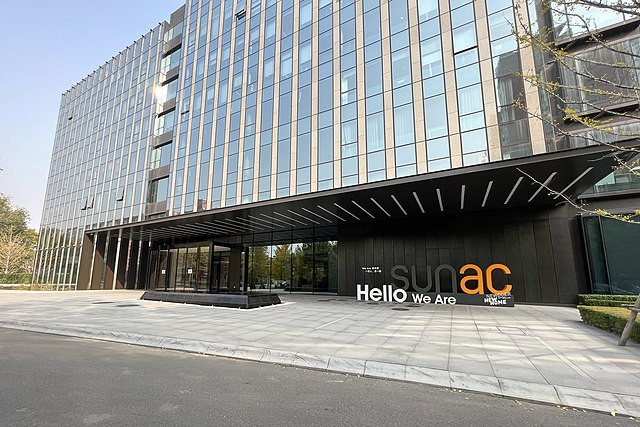In a move that underscores the deepening crisis in China's property sector, Sunac, one of the nation's leading property developers, has filed for bankruptcy protection in the United States. This comes on the heels of the company securing approval from its creditors to restructure nearly $10 billion worth of debt.
The petition for Chapter 15 protection was filed with the US Bankruptcy Court for the Southern District of New York. This process facilitates cooperation between US courts, debtors, and other jurisdictions involved in cross-border bankruptcy proceedings. It's a mechanism that can aid Sunac China in its negotiations with overseas lenders as it seeks to restructure its debt.
Notably, this is the second major distressed Chinese developer in recent weeks to seek such protection in the US. Evergrande, another property giant, made a similar filing a month ago after reporting losses of $81 billion over the past two years.
Sunac's move into the Chapter 15 process might offer the company a lifeline as it negotiates with foreign lenders. Recently, Sunac announced that it had garnered approval from over 2,000 creditors to restructure approximately $9.9 billion in debt and interest payments owed to investors outside China. This achievement marked Sunac as the first major Chinese property developer to gain such an approval, setting a potential precedent for other beleaguered developers in the country.
Before its default in 2022, Sunac was China's third-largest property developer. However, by August 2023, it had slipped to the tenth position, as per data from CreditSights. The company's ability to strike a deal with overseas creditors might provide a blueprint for other distressed developers to regain their footing.
In contrast, Evergrande has faced challenges in its restructuring efforts, particularly with overseas creditors. The terms offered by Evergrande have been less favorable, leading to a more challenging negotiation process. "While Evergrande is still struggling to get their offshore creditors on board, Sunac has really overtaken them," remarked Sandra Chow, co-head of Asia Pacific research at CreditSights.
The news of Sunac's US bankruptcy filing led to a 4.3% drop in its shares in Hong Kong, erasing earlier gains. The company, like many of its peers in the Chinese real estate sector, has grappled with a cash crunch exacerbated by a sales slump, making it challenging for many developers to service their debts.
Sunac's total liabilities had skyrocketed to a staggering 1 trillion yuan ($137.6 billion) by the end of the previous year. This financial strain was further compounded by a 50% sales slump in 2022 compared to the year before.
While the restructuring might offer Sunac some respite, the core challenges facing its primary business persist. Chinese policymakers have introduced measures to bolster the struggling industry, but the effectiveness of these interventions remains to be seen. The overarching question is how these policy supports will rejuvenate sales and the core business operations of these developers.
The ongoing challenges in China's property sector are not limited to Sunac. Country Garden, which was China's largest homebuilder just a few months ago, is also on the verge of default, highlighting the broader issues plaguing the industry.






